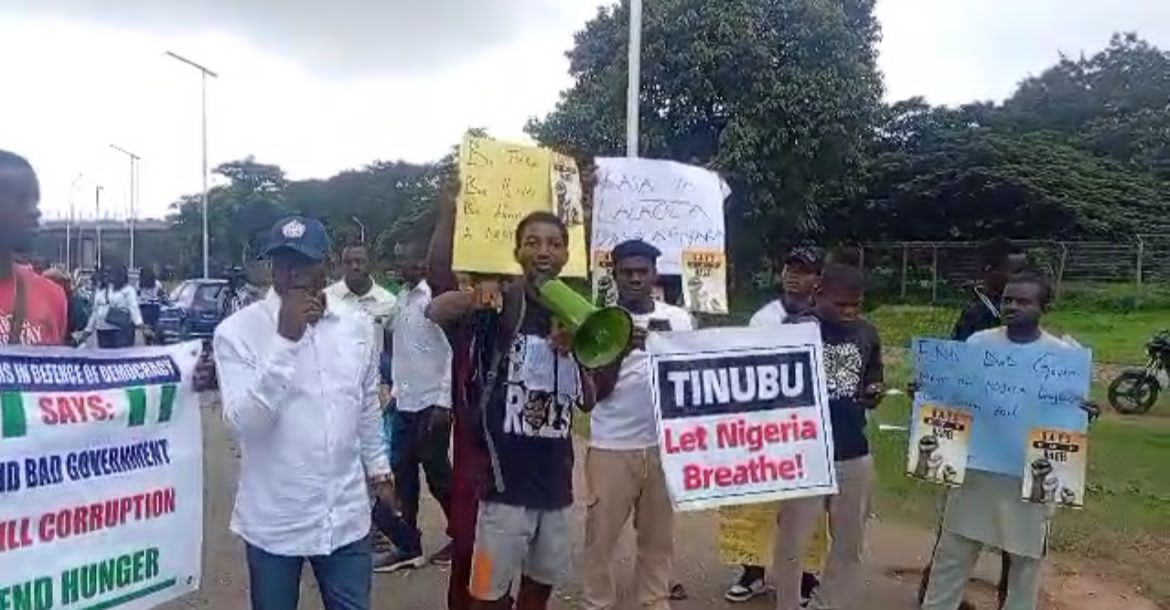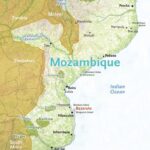The “End Bad Governance” protest in Nigeria has been in the limelight of the nation for the past few days, placing before the government pent-up anger by citizens in relation to economic hardship, corruption, and bad governance. Since August 1, thousands of Nigerians have taken to the streets, protesting and calling for key reforms while demanding accountability from our leaders.
It is no secret that Nigeria stands at a critical junction, with the majority of its citizens bearing the heavy cross of economic misery. The pain is palpable, and the reality is dire and heartbreaking; people are dying of hunger, unable to afford even one meal a day, let alone three. As prices of essential commodities and life-saving medicines are skyrocketing day after day and pushing basic necessities out of reach, families can do little but watch helplessly.
The early days of the protest were marked by violence. Lives were lost, properties and businesses of innocent, hardworking citizens destroyed, and looted, curfews were imposed in some states, which clearly showed the complexities involved in organising mass actions and how hard it really is to coordinate mass movements, especially in a nation burdened by innumerable challenges.
Indeed the cautionary voices warning, especially that of the Ulama against probable hijacking, has been vindicated. We have seen the faces of those who have been lurking around the corner, waiting to take advantage of such situations and hijack legitimate grievances for personal gain or to settle scores. This fear, shared by many, including myself, has come to pass that such a protest could easily get hijacked.
- Common entrance exam: Stop extorting pupils, Kwara govt warns teachers
- Residents groan as shops run out of basic commodities in Kano
In the wake of rising protests, President Tinubu addressed the nation yesterday, appealing for calm and understanding. He admitted to the protesters’ grievances but explained that his administration’s economic reforms are important steps required to correct many years of economic mismanagement. He explained that such measures, although painful in the short run, were a vital long-term initiative to ensure economic stability and growth for Nigeria.
The president also called for an end to the protests, arguing that there was a need for citizens to engage in constructive dialogue with his government. He assured the nation that his administration was keen to address the concerns, adding that policies aimed at easing the economic burden of Nigerians were on his radar. The president’s speech, though filled with substance, lacked the urgency and specificity the situation requires.
The urge to take to the streets in protest is understandable. Anger, frustration, desperation—these are all justified emotions. But what is crucial is for the leaders of this movement to consider alternative methods of engagement and tactics that can effectively communicate grievances and bring about the desired change without exposing citizens to unnecessary risks. While protests can be a powerful means for change, there’s a thin line between a peaceful protest and a destructive riot, and we quite literally saw that line blur right before us.
The chaos that presaged the early days of the protest has raised so many concerns, especially the safety of the protesters. The “End Bad Governance” protest in Nigeria is one of those moments in the history of the nation. But for this movement to realise its aspirations, it must adopt a strategic, well-organised, unified approach that can channel public frustration into constructive change without compromising the safety of the public or economic stability.
Some such approaches could be to:
- Enlarge the coalition by mobilising the different strata of society. These include engagement with civil societies, trade unions, student groups, and other such stakeholders who could be formed into a united platform.
- Insist on having an audience with the president—perhaps even have the governors present.
- Identify neutral mediators to facilitate discussions.
- Put forward concrete demands, propose solutions and indicate feasible timelines for implementation. This will serve as a way to clearly agree on each demand with the government and thus create a framework for accountability.
- Design a clear communications strategy that will inform the public of progress.
This way, the protesters are able to offer a cohesive, organised, and results-oriented movement that amplifies their message and presents a clear and authoritative presentation on what the people want, further stepping up the pressure on the government to deliver real reforms. This would definitely help in paving the way for some meaningful negotiations that can bring about the change the country so desperately needs.
The potential economic fallout from sustained protests is also not very encouraging. The fragile economy of Nigeria does not need additional shocks. Disruptions to daily business may contribute to exacerbating the same circumstances that the protesters want to see action taken on. The last thing this country needs is more economic shocks that will propel many more people into poverty.
Looking back at recent history, how many peaceful protests in the last two decades have indeed ended peacefully and achieved their goals? The record is actually somber. So, those who call for protests must also bear the responsibility for the actions of every individual participating in them. You can’t just ignite the flame and then step back. The greatest hypocrisy in this scenario comes from those keyboard activists encouraging people to take to the streets while remaining safely behind their keyboards in the comfort of their homes.
None of this belittles the seriousness of the situation. There’s no denying that what we obtain today is a direct result of corruption and bad governance over the years. However, President Tinubu’s government must do much more to alleviate this hardship.
The suffering is real, and the need for change is urgent. But in light of this, let us channel that energy into engagement at a strategic level. This could be the way forward to systemic changes that address the root causes rather than symptoms and thus help create a system of governance that genuinely serves its people.
This is not an economic crisis, but a humanitarian emergency unfolding before us. It is time for tangible demands, backed by concrete action plans, and a united front against the forces that brought us to this point.
God bless and protect Nigeria!

 Join Daily Trust WhatsApp Community For Quick Access To News and Happenings Around You.
Join Daily Trust WhatsApp Community For Quick Access To News and Happenings Around You.


